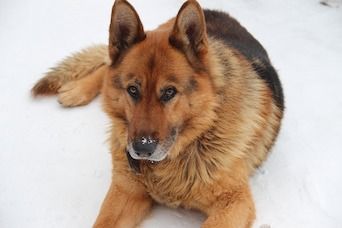LOPP Chemotherapy as First-Line Treatment for Canine T-Cell Lymphoma
Retrospective study evaluates the response rate and toxicity of a modified LOPP chemotherapy as a first-line treatment option for canine T-cell lymphoma.

Researchers in Australia recently performed a retrospective study to evaluate the response rate and toxicity of a modified LOPP chemotherapy when used as a first-line treatment option for canine T-cell lymphoma. LOPP chemotherapy—which utilizes a protocol of lomustine, vincristine, procarbazine, and prednisolone—was previously observed to have high response and toxicity rates when evaluated as a rescue protocol for canine lymphoma.
Methods
The study included 31 dogs belonging to 20 breeds that were diagnosed with intermediate or high-grade T-cell lymphoma based on cytological or histopathological evaluations. Dogs were excluded from the study if they had undergone prior chemotherapy or corticosteroid treatment, or if the lymphoma was classified as stage I or II, epitheliotropic, or low-grade. The dogs were treated between January 2011 and June 2016 at Small Animal Specialist Hospital in North Ryde, Australia.
RELATED:
- Moving Closer to Immunotherapy for Canine Cancer
- WVC 2017: An Immunotherapy Vaccine for Canine Cancer
The modified LOPP schedule was performed in 28-day cycles and progressed as follows:
- Days 0 and 14: vincristine (0.5 mg/m2)
- Day 1: lomustine (60 mg/m2)
- Days 0 through 13: prednisone (1 mg/kg)
- Days 2 through 13: procarbazine (50 mg/m2)
Treatment response was evaluated every 14 days through physical examination, hematology, and biochemistry results. Response was classified as complete remission (resolution of all clinically-detectable disease), partial response, or no response. The authors also determined the presence and grade of toxicity during each treatment cycle via veterinary examination and the completion of an owner questionnaire.
Results
Of the dogs that met the inclusion criteria for the study, the median age of participants was 7 years and median weight was 26 kg. T-cell lymphoma was diagnosed via immunocytochemistry for 28 of the dogs and immunohistochemistry for 3 dogs.
All dogs were treated with the modified LOPP protocol, which also included l-asparaginase induction for 13 of 31 dogs. Seventy-four percent of participants completed the intended LOPP protocol, consisting of 6 cycles over 24 weeks.
Ninety percent of the study’s dogs experienced complete remission of T-cell lymphoma after chemotherapy, while 7% and 3% experienced partial or no response to therapy, respectively. The median disease-free interval—defined as the time between first documented remission and relapse—was 176 days (range 37-1745 days). Survival rates after LOPP chemotherapy were 39% for 1 year and 25% for 2 years. All deaths in the study were attributable to lymphoma.
Modifications to the LOPP protocol, including the increased vincristine dose interval and separate administration of lomustine, appeared to reduce toxicity issues commonly reported with LOPP chemotherapy. Adverse effects included hepatotoxicity from lomustine use (26%), myelosuppression (23%), and gastrointestinal signs (19%). Four of 31 dogs were hospitalized for side effects during the course of the study.
Major Conclusions
While a high response rate was observed with modified LOPP chemotherapy, response was typically of limited duration. Additionally, the overall survival times in this study were comparable to those observed with other chemotherapy options for T-cell lymphoma. Toxicity, however, was less frequently observed compared to other therapies. Therefore, the authors concluded that modified LOPP protocol is a viable treatment option for high-grade T-cell lymphoma in dogs.
Dr. Stilwell received her DVM from Auburn University, followed by a MS in Fisheries and Aquatic Sciences and a PhD in Veterinary Medical Sciences from the University of Florida. She provides freelance medical writing and aquatic veterinary consulting services through her business, Seastar Communications and Consulting.